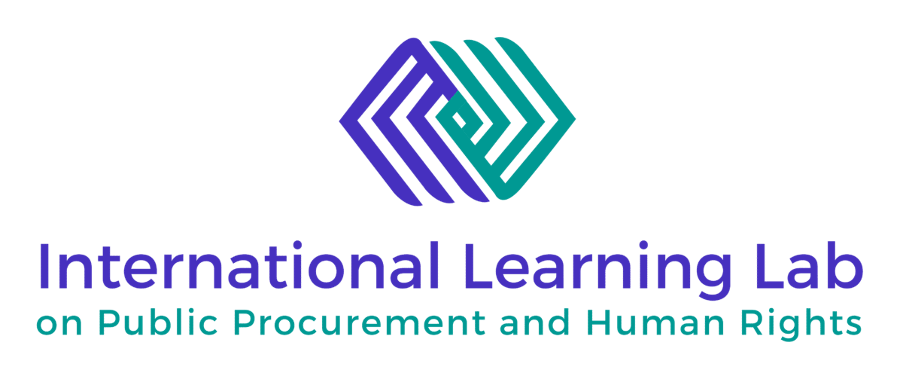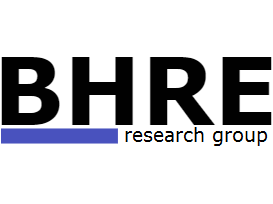STAMPING OUT MODERN DAY SLAVERY FROM THE EU’S RUBBER GLOVE SUPPLY CHAINS - Andy Hall, September 2019
In 2014, Finnwatch and I first discovered rampant forced labour and exploitation of migrant workers toiling awayin medical gloves factories in Malaysia and Thailand.
In late 2018, the Guardian published an investigation revealing forced labour from high recruitment fees and debt bondage at Top Glove, the world’s largest glove manufacturer in Malaysia supplying Britain’s National Health Service.
Despite some minimal improvements, it’s clear that modern day slavery in factories in Asia supplying basic hygiene and medical products to the EU remains systemic.
In 2018, an estimated 268 billion gloves were used globally, with an annual increase of 15% predicted. Ensuring a continuous supply of gloves, mostly manufactured in migrant labour-intensive factories in Thailand and Malaysia, is vital for maintaining public health and ensuring food safety.
Yet does our dependence on gloves and other hygiene, safety and medical products tainted by exploitation, and procured often cheaply so as to reduce taxation burdens, mean manufacturers or suppliers are exempt from combatting this abuse?
The UK government has recently announced it will pilot ‘an innovative new programme that will improve responsible recruitment in parts of our public sector supply chains that pass through Asia. And the more nations that subscribe to this approach, the more effective it will be.’
Whilst a UK led pilot on responsible recruitment in the Malaysian rubber manufacturing industry is a hopeful sign, much more effort is needed from both demand and supply sides to address this scourge of modern day slavery.
EU member state public procurement bodies should ensure the price they pay for gloves ring-fences responsible recruitment costs that cannot be passed onto desperate job seekers. Worker-driven social monitoring empowering workers to watch over recruitment processes could then be deployed to ensure workers still don’t pay for their jobs.
Yet still little evidence of such pragmatic approaches to socially responsible public procurement and responsible recruitment exists in the EU.
In August, I interviewed migrant workers from Bangladesh, Myanmar and Nepali eking out a living in the largest Malaysian rubber glove industry factories to prove this point.
Still 1,000s of migrant rubber glove workers were arriving from impoverished villages to Malaysia in debt bondage with passports confiscated. Some reported paying up to US$5,000 for a job. This is despite rubber glove manufacturers and buyers claiming to have implemented fair, ethical or responsible recruitment policies as far back as 2015.
Many workers claimed they didn’t have possession of their passports and were unable to resign. Given change of employer is illegal in Malaysia, resignation would mean irregularity and greater risk of exploitation from corrupt law enforcement officials and unscrupulous employers. Or they could return home after paying various penalties to their employers, indebted and with a significant loss of face.
Driving responsible recruitment forward is a priority in the rubber manufacturing industry to ensure workers recruited in the future do not have the same exploitative experiences as those already arrived. But workers now suffering debt bondage and forced labour must also be reimbursed for fees they have paid and have their passports returned to them.
Despite increasing global awareness on this debt bondage and forced labour, my recent time in Malaysia disappointedly found few gloves workers paid back recruitment related fees and costs. Two exceptions were: some workers at Karex condom factory, recently exposed in the media; and some workers at Ansell, that adopted under pressure a zero recruitment cost policy four years ago that remains unsuccessfully implemented until today.
More concerning however was that this lack of remediation of well documented debt bondage and forced labour had actually worsened worker’s situations. The media’s attention on the rubber glove sector had resulted in reduced working hours for workers to comply with social audit standards and thus less earnings to pay off worker’s existing debt.
A 2018 pledge by the UK, Australia, New Zealand, US and Canada to apply responsible recruitment and remediation principles to public procurement supply chains therefore remains theoretical. Likewise, remediation requirements imposed by Principle 22 of the UN Guiding Principles on Business and Human Rights on rubber glove companies and their global customers, both private and public sector, remain unfulfilled.
Most employers and buyers don’t ensure realistic recruitment costs and related expenses are covered. Multinational companies continue to claim a commitment to responsible recruitment but don’t acknowledge the increased costs for them and their suppliers. Nor do they want to pay these costs. As a result, sustainable levels of profit required for responsible recruitment practices cannot be made by recruitment agencies without also charging workers.
Responsible recruitment can also be enforced contractually between private sector or government buyers and their suppliers. However, responsible recruitment rarely features in contracts or codes of conduct. Indeed, negotiations on purchase price and production timelines actually undermine responsible recruitment processes in practice.
As a result of this limited private sector and government commitment, it’s entirely predictable that responsible or zero-cost recruitment is not being achieved and workers remain in debt bondage, forced labour and modern-day slavery in our public and private procurement supply chains, including in rubber gloves factories.
Without significant engagement and commitment to change, migrant workers will continue to pay the costs of their unethical and exorbitant recruitment. Likewise, companies and governments will continue to be complicit in funding a long and unregulated chain of recruitment agencies, sub-agents and brokers whilst ensuring corrupt payments continue to be made to officials as well as kickbacks to company HR staff who are actually paid to take on workers.
Unless there is a genuine commitment by manufacturers, suppliers and public and private sector buyers to pay a living wage to workers in their supply chain also, media exposes and campaigns will only see workers facing reduced working hours, less earnings and, as in Malaysian rubber gloves, too often more severe debt bondage and forced labour.
Whilst I have explained in a recent blog how to ensure responsible recruitment becomes reality and is not only rhetoric, there are three ways in which the EU, as the largest trading block in the world, can also signal commitment to change.
Firstly, the EU and its member states could adopt legislation that makes it mandatory for companies to prevent and address human rights violations like forced labour from debt bondage in their operations and supply chains.
As with recently enacted French loi de vigilance legislation, an EU Directive imposing mandatory due diligence on all companies to prevent rights violations in their supply chains is already called for by a broad spectrum of civil society, parliamentarians, businesses and investors. Such legislation could ensure companies are held accountable when they neglect their responsibility to respect human rights and remove hurdles for victims to access justice and remediation.
The EU already has conflict minerals and timber products due diligence regulations. These require companies placing tantalum, tin, tungsten, gold and timber in the EU market to demonstrate to enforcement authorities that these products have not been sourced from conflict areas, endangered species and have been harvested legally. Such regulatory action could be broadened to all other industries, including rubber manufacturing and medical supplies.
The fines for non-compliance with existing due diligence regulations are reasonably dissuasive and competent authorities can be efficient at tracking importers of these products thanks to customs data made available to them. Government agencies could thus require companies importing for instance rubber gloves to demonstrate they have proper due diligence in place to prevent forced labour from debt bondage resulting from high recruitment fees.
Secondly, public procurement, or the buying of works, goods or services by public bodies, accounts for over 14% of EU GDP, 2.6 trillion dollars. Multiple billions could be stirred towards more sustainable suppliers by nudging and incentivising companies to strive to compete for the most sustainable supply chains.
The EU could amend public procurement directives and make it mandatory for procurers to take into account social responsibility and human rights issues in purchasing decisions. Taking for example forced labour risks or the need to pay a living wage into account when spending public funds is currently regarded as voluntary by many public purchasers. Most make purchasing decisions based on cheapest price only without considering human rights therefore.
The EU could also go further and make social evaluation criteria “legal.” Influential EU procurement experts still maintain that applying social evaluation criteria in public procurement tenders “artificially narrows competition“. Given the possibility of complaints against public procurement agencies by unsuccessful bidders, few tenders try to implement award criteria based on human rights due diligence, even if human rights experts have started to contradict this view.
Thirdly, acknowledging the UK Government’s pilot on responsible migrant worker recruitment in Malaysia as a major positive development, the EU could likewise use the Malaysian or Thai rubber glove industry as its own pilot for sharing best practices in ensuring protection of worker rights amongst public procurers. This could highlight leaders like the Swedish local authorities and stimulate action amongst other member state procurers.
If there is no action from the EU and its member states, the end result will continue to be rubber gloves tainted with forced labour at your local hospital or health centre and in your supermarkets and schools. This must and should stop.
*Andy Hall is a British migrant worker rights specialist living in Asia since 2005 and currently residing in Nepal.

